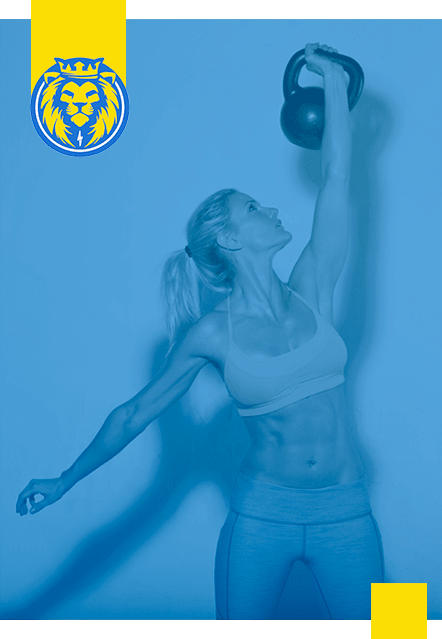Vegans and Vegetarians: Are You Getting Enough Protein?
As more news and documentaries come out about how farm animals and fish are raised/treated, we have seen an increase in the amount of people that are trying to eat a more vegetarian or completely vegan diet. A major problem that comes from transition though is that if you do switch to a vegetarian or vegan diet, you miss out on a lot of important nutrients that can mostly be found in meat. What we are going to focus on in this article is protein and its breakdown of amino acids, and how to get it all in!
What is Protein?
Protein is one of the three main macronutrients (Carbohydrates and Fats are the other two) our body uses. It’s used primarily for rebuilding and maintaining muscle mass, repairing damaged cells in the body (skin, hair, nails, tendons and ligaments, ext.), enzymatic processes (like the enzymes in the digestive system that helps to break down food), some hormones, and lastly as energy to fuel the body! Needless to say, it’s kind of important to get enough in. However, a protein is not just a protein, it is made up of an assortment of building blocks called amino acids. There is a total of 20 amino acids that make up all protein yet only 9 are what we call “essential” amino acids, our body cannot make them so we have to get them through our diet. For a little more added fun, our body does not store amino acids so we have to consume enough sources of them every day!
So, How Much is Enough?
Based on the Recommended Daily Allowance (RDA), optimal protein consumption for a non-exercising, healthy adult is 0.8 g of protein per kg of bodyweight (1kg = 2.2lbs). So, for a 160lbs healthy adult, they should have approximately 58g protein (160lb/2.2 = 72.72kg bodyweight x 0.8g/kg = 58.18g protein). Let’s say we have someone who exercises or becomes sick, the body need the protein to rebuild the immune system and damaged tissue so that person needs more protein, around 1.2-1.4g/kg of protein. So for the previous 160lbs adult, now he needs 88-100g protein per day!
Is it Possible to Eat Enough Protein per Day?
YES! It is 100% possible to get in all your protein per day and there are a few guidelines that you can follow to help make getting in protein easier.
- Find your favorite high protein vegetarian sources from the sources below
- Soy products
- Tofu and Tempeh have been very popular amongst Vegans because of the high isolated protein content. They have the texture of eggs but when cooked, take on the flavor of whatever it is cooked with.
- Nuts and Seeds
- Almonds, pistachios, walnuts, pecans, pumpkin seeds, sunflower seeds, hazelnuts, brazil nuts, ext. all are great sources of protein and they all have a unique assortment of vitamins and minerals that are important for the body to use.
- For Example, Brazil nuts are known for their high Selenium content, which is linked to decreasing cholesterol, improving brain health, and improve male fertility.
- Beans
- Pino Beans, Black Beans, Adzuki Beans, Lentils, Kidney Beans, Edamame, ext. high combination of protein and fiber but can also be a great source for B6 and Iron.
- Whole Grains
- Sprouted Products, Quinoa, Whole Oats, Brown Rice, Barley, ext. making sure that that you eat in the grains area is as unprocessed as possible is the best way to get the most protein, fiber, vitamins and minerals out of them. This isn’t the highest source of protein but every gram counts!
- IF VEGETARIAN: Dairy Products
- Cow and Goat products, hard cheeses, low fat cottage cheese, Greek yogurt, low fat milk, whey protein powder, ext. Are some of the higher sources of protein you can find outside of meat and soy products.
- Make sure that the label says grass-fed, this will make it easier to also get Omega-3 fatty acids in the diet which help with cell protection and your immune system.
- Soy products
- Add variety!
- Since there are 20 amino acids, 9 which are “essential”, we need to make sure to take them all in. Vegetarian sources typically do not have all of the amino acids alone.
- Have a little bit of everything from the list above to get all the amino acids but also the vitamins and minerals that are normally high in meats such as Folate and Iron.
- If you are still finding it hard to hit your protein goals, supplement with a vegan protein powder.
- Companies have started catching on to the Vegetarian lifestyle and have been making protein powders with various sources like brown rice, pea, soy, garbanzo bean, and more but they are finally starting to taste better! So if push comes to shove and you are still struggling, try to supplement your protein.
Final Thoughts?
There is nothing bad about choosing to follow a vegetarian or vegan diet. I find that sometimes people that eat meat put down people that choose not to. I also know a few people that stopped their vegetarian lifestyle because of it. Since then, I have personally made it a challenge for myself to take one day of the week to eat vegan to help recognize why people follow a vegan lifestyle. If you are reading this and you love eating meat, I challenge you to do the same! Pick a day and eat like a vegetarian or completely vegan.
If you do follow this lifestyle, look at your daily diet. Are you getting enough protein? Calculate it out and increase it if necessary! A tall tale sign of not enough protein is that you tend to get sick easily and fatigue quickly. Find what foods you like that are higher in protein, vary the sources you take in and if you are still struggling then find a vegan protein powder to supplement with!
If you have any further questions, don’t hesitate to ask a member of the Pulse Fitness Staff to set up a nutrition consultation to figure out ways to improve your vegetarian/vegan lifestyle!

